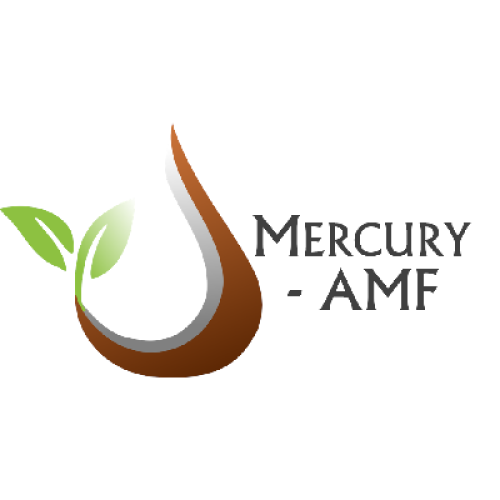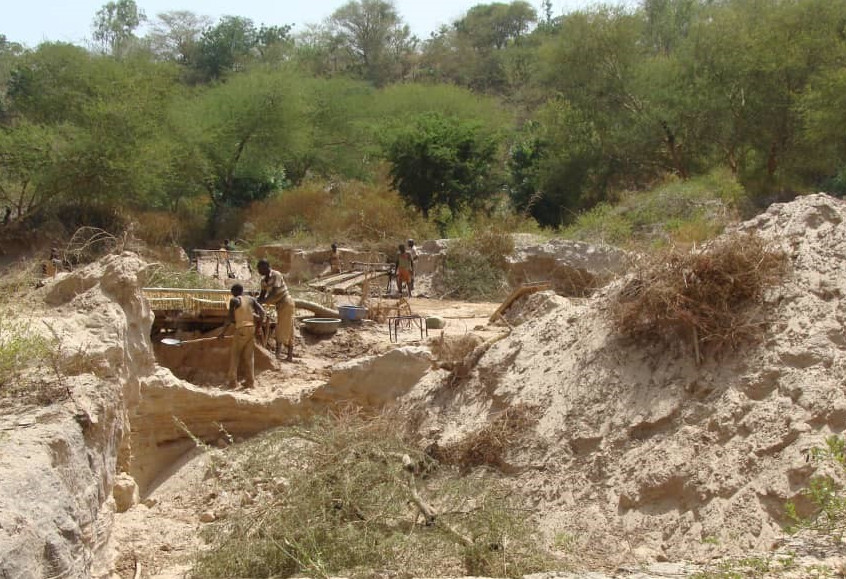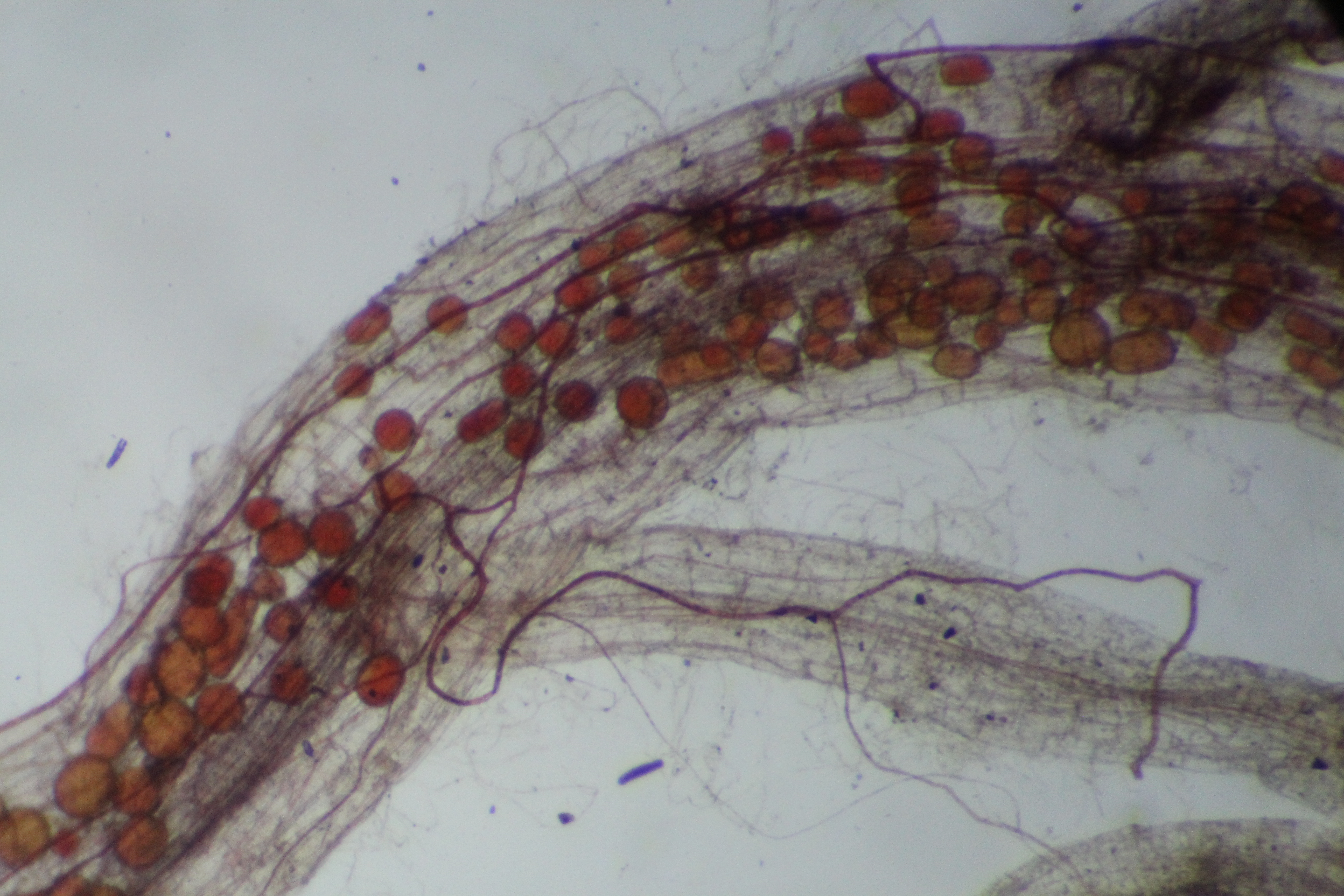

Good health and well-being
Partnerships for the goals
Coordinator: University of Hohenheim - Faculty of Agricultural Sciences
Contact Person: Professor Jens-Norbert Wünsche
Address: Emil-Wolff-Straße 25, 70599 Stuttgart
Phone: +49 711 459-22368
Email: jnwuensche(at)uni-hohenheim.de
Project partner
- INOQ GmbH, Schnega
Project partners in Ghana and Burkina Faso
- CSIR-CRI, Kumasi (Ghana)
- CSIR-SRI, Kumasi (Ghana)
- KNUST, Kumasi (Ghana)
- ISSER, Accra (Ghana)
- WASCAL, Ouagadougou (Burkina Faso)
- INERA, Ouagadougou (Burkina Faso)
- SOS Sahel, Ouagadougou (Burkina Faso)
Phytoremediation of Mercury-contaminated Mining Sites in Ghana and Burkina Faso Using Arbuscular Mycorrhizal Fungi
In Ghana and Burkina Faso, mercury is used in manual small gold mining. Agricultural land is contaminated by the use of mercury, which has drastic effects on the environment and human health. In the Mercury-AMF joint project, partners from Germany, Ghana and Burkina Faso are investigating an innovative process for the decontamination of mercury-contaminated soils in West Africa. Arbuscular mycorrhizal fungi (AMF) plant systems are being developed and tested for mercury extraction for this purpose.
Consequences of small-scale gold mining
The small-scale, often illegal gold mining in Ghana and Burkina Faso has a strong impact on the ecological and socio-economic development of the neighbouring communities. Gold miners use mercury to break down gold for amalgamation. This is a process in which gold-containing raw materials are mixed with liquid mercury. The obtained liquid amalgam is heated to obtain the free gold. Consequences include the contamination of drinking water and agricultural land as well as health problems in people working in the mining industry. To counteract the negative consequences of gold mining, Ghana and Burkina Faso have enacted land recovery laws after gold mining. Mine operators are encouraged to grow crops that can thrive on polluted land and steadily reduce mercury levels in the soil.

Tropical, nitrogen-fixing trees (legumes), which form a symbiotic relationship with nitrogen-fixing nodule bacteria (rhizobia), show promising potential for the desired recovery of land for agricultural production, so-called phytoremediation. In addition, many leguminous species have a dense network of fine roots, which come into contact with root fungi (mycorrhiza) and can form a lasting symbiosis of fungi and plants. Most likely, these mycorrhizal fungi, with their dense network of hyphae, increase the potential for decontaminating mercury-contaminated soils.
Innovative AMF plant systems
This is the foundation on which the Mercury-AMF project is being built. The researchers are the first to apply a bio-sustainable arbuscular mycorrhizal fungus (AMF) plant system for the decontamination of mercury-contaminated gold mines in Ghana and Burkina Faso. Arbuscular mycorrhizal fungi (Glomeromycetes) are widespread mycorrhizal fungi that form tree-like hyphae structures within the root cortical cells. The innovative method of so-called mycophyte extraction, which is based on a symbiosis of selected plants with mycorrhizal fungi, is to be used for the accumulation of mercury and thus for the decontamination of mercury-contaminated sites.
Partners from Germany, Ghana and Burkina Faso are together making an important contribution to knowledge of the principle of mycophyte extraction as well as its actual application. At the local level, different stakeholders are involved in using the results of the commercialisation of products and services in West Africa.
Local transfer of knowledge and results
The phytoremediation of mercury-contaminated soils by AMF plant systems has not yet been carried out and requires a sound and interdisciplinary research approach. Mercury-AMF is investigating the bioavailability in soils, the accumulation of mercury in various plants as well as interactions with AMF in this process using basic technological, soil-ecological and plant-physiological research. At the same time, socio-scientific research is analysing the institutional and socio-economic context for the application of AMF plant systems. Stakeholder groups, such as operators of commercial and small-scale mines, and administrative, political and business people will be involved from the very beginning of the project and accompanied by capacity-building measures. This approach guarantees the sustainable use of the results in Ghana and Burkina Faso.

As part of the project, INOQ GmbH is able to work in cooperation with local companies such as arboretums and nurseries to develop a phytoremediation and phyto-extraction service. After an establishment phase on the Ghanaian and Burkinabe markets, market development in other regions of Africa is also planned for the long term. The company aims to provide a variety of consulting services, such as infrastructure development, technical staff training and on-site consulting for local authorities and businesses. The target market for these services includes a large number of countries with mining activities in similar agro-ecological zones. Overall, the project will contribute to the decontamination of mercury-contaminated soils in Ghana and Burkina Faso and thus to the elimination of corresponding environmental and health damage.
